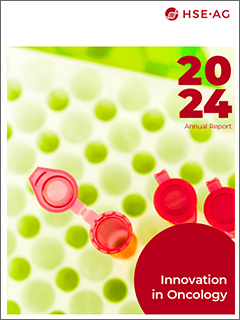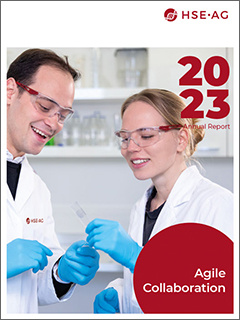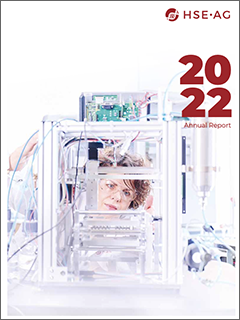
Personalized therapies must become more economical
Automating the production of personalized cancer therapies is crucial. This approach not only reduces costs but also minimizes the need for highly qualified personnel, making widespread use feasible. Additionally, the complex quality controls for each therapeutic agent must become significantly more efficient.
The future of oncology is personalized, with therapies tailored precisely to each individual’s cancer. A fundamental aspect of this approach is an exact genetic diagnosis of the individual tumor and its development throughout the entire treatment period, including aftercare. This ensures optimal treatment at all times.
Making production faster and more cost-effective
Production of individual therapies must also be automated, emphasizes Felix Westhoff, Head of Business Unit - Engineering Service at HSE•AG: “Without automation, it will not be possible to make personalized methods such as CAR T-cell or mRNA cancer vaccination – however successful they may be – available to as many cancer patients as possible. The current costs of up to several 100,000 dollars per treatment are still far too high for this and the production rates of existing methods are also far too low for widespread use.”
What’s more, automation is also unavoidable due to the need for skilled labor. “With intuitive operation, a device not only makes a lot of manual work superfluous. It also reduces the training requirements for operating personnel,” says Westhoff.
One device each for mRNA vaccines and CAR T-cell activation
In the field of mRNA cancer vaccines, for example, automation means that the synthesis of the mRNA sequences, whose protein products specifically immunize the organism against the patient’s cancer cells, and the production of the lipid envelopes, which mediate the transfer of the mRNA into body cells, are integrated into a single device wherever possible. In the same way, the entire process of producing a CAR T-cell therapeutic must be brought together in a continuous system, starting with the selection of T-cells from the patient’s serum and the vector-induced activation of the T-cells on the patient-specific tumor through to the selection and isolation of the activated cells, for example using magnetic beads.
Automation is essential to make personalized cancer therapies widely accessible.
Quality controls must also be automated
In addition, there is another area in all personalized therapies where efficiency must be increased: the quality controls required for approval. Up to now, they have required practically as much effort as the production of the individual therapeutics, emphasizes Westhoff: “Automating the verification assays can save as much time as automating the production. And the need for qualified personnel can also be reduced to a similar extent.”

About Felix Westhoff
Felix Westhoff is Head of Business Unit - Engineering Services at HSE•AG, where he is part of the management team and plays a key role in strategic service development, project leadership, and key account management.
He has more than 20 years of experience in the medical technology and diagnostics industry.
Prior to joining HSE•AG, he held senior positions at Medtronic, Biotronik, and eucatech AG, where he led international product development projects for vascular implants, catheter systems, and automated diagnostic platforms.
Felix holds a Degree in Engineering from FH Aachen – University of Applied Sciences, Germany.

Recent Annual Reports



